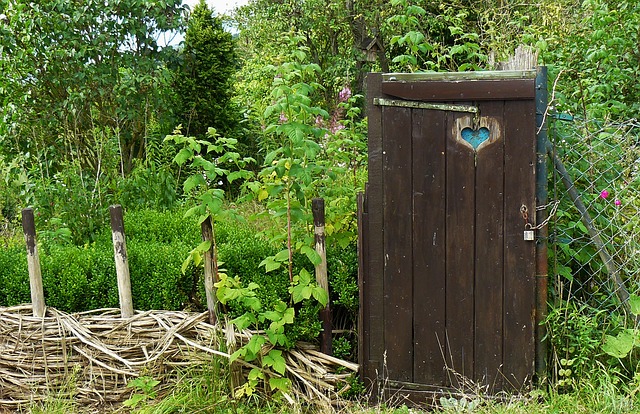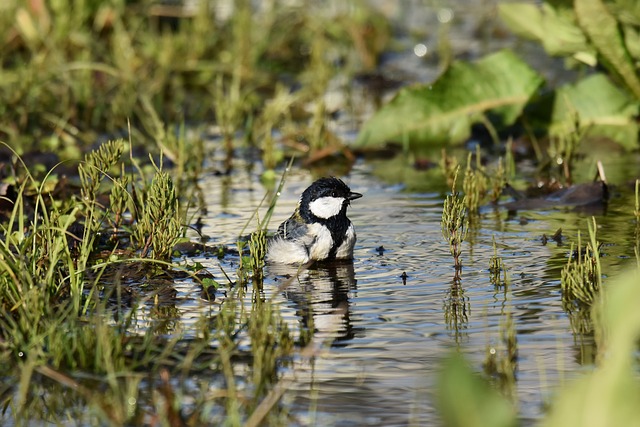- Grow a pollinator border with key insect forage plants such as comfrey, raspberry, clovers and other wild flowers to provide nectar.
- Increase the amount of nectar available by planting individual blossoming fruit trees or a community orchard.
- Encourage friendly insects with bumblebee and ladybird ‘hotels’ and bare soil ‘scrapes’ for other insects.
- Having a separate wildlife area as a mini- nature reserve where wildflowers can grow if this is not allowed within allotments.
- Encouraging sustainable ‘pest’ control with bird and bat homes, wood piles for hedgehogs and damp places for amphibians – they will all eat unwanted animals.
- Deterring ‘pests’ in a friendly way by using safe and effective bird deterrents, beer traps for slugs or new organic slug pellets, spraying aphids with very dilute washing-up liquid (half a teaspoon per litre).
- Making a pond with several depths, and a few rocks or slabs at the edge for amphibian access and a ramp for hedgehogs. If a pond is not possible, an old sink filled with water can teem with wildlife too.
- Using companion planting for pest control / encouraging useful insects.
- Planting old native species and varieties, including traditional vegetables.
- Growing some plants to give winter food for birds e.g. kale, seedheads,hips and haws in hedges.
- Avoiding the use of peat by using sustainable substitutes.
- Building up soil biodiversity by sheet mulching and incorporating organic material.
- Composting waste material, perhaps on a communal basis.
- Improving the water management by the design of site, mulching, and collecting rainwater.
- Hedgerow management and / or restoration, including the planting of native species such as buckthorn, alder buckthorn and Midland thorn around allotments, ensuring a 3-5 year programme of hedgerow cutting to give a range of heights, fruiting, etc.
Don’t forget to keep a wildlife diary, fill in the Warwickshire Wildlife Trust biodiversity survey form and send your records to the Warwickshire Biological Records Centre.
Source: Warwickshire Wildlife Trust www.warwickshirewildlifetrust.org.uk
See our month-by-month Encouraging Wildlife Guide and Wildlife Watch pages for more ideas on increasing wildlife.


